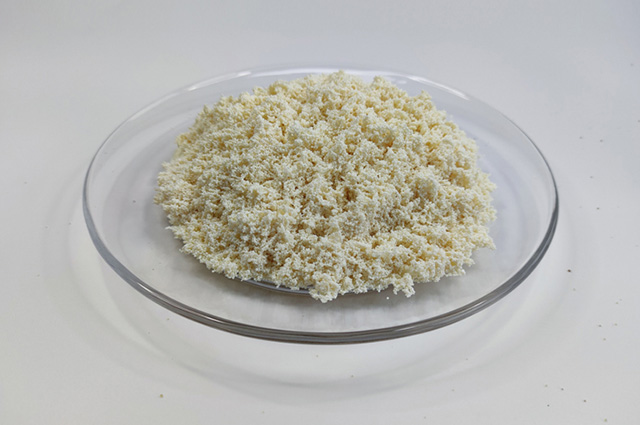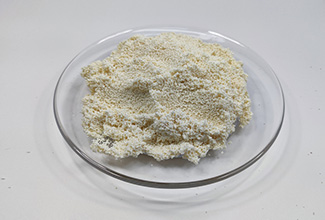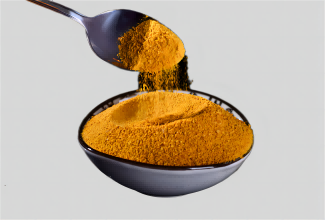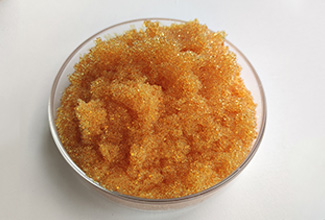What is Deionization Resin?
If you've ever wondered how to turn hard, mineral-laden water into something pure enough for industrial use or even just for your aquarium, then you might have come across the magic of deionization resin. But what exactly is this stuff, and why is it such a big deal? Let's dive in (pun intended!) and explore the world of deionization resin in a fun and simple way.

What is Deionization Resin?
Deionization resin is like the ultimate water filter that goes beyond just straining out particles. It's a special kind of resin that removes ions – the charged particles – in water. Think of it as a tiny but super-efficient sponge that soaks up those unwanted minerals and salts that make water "hard."
In simple terms, water naturally contains ions like calcium, magnesium, sodium, and chloride. While these are great for life in general (plants need them!), they can cause issues in industrial processes, boilers, or even in delicate applications like lab experiments or medical devices. Deionization resin steps in to grab those ions and leave you with water that's almost as pure as distilled!

How Does It Work?
Deionization resin works through a process called ion exchange. Here's a simple breakdown:
Why Should You Use Deionization Resin?
Deionization resin is used in many industries, from pharmaceuticals and electronics to power plants and drinking water systems. Here's why it's so awesome:
Deionization resin isn't just for big factories or labs. If you're a hobbyist, you might use it in your fish tank or for your home's water system. It's widely available and often sold in various forms for different needs.
Email: info@bidragon.com

What is Deionization Resin?
Deionization resin is like the ultimate water filter that goes beyond just straining out particles. It's a special kind of resin that removes ions – the charged particles – in water. Think of it as a tiny but super-efficient sponge that soaks up those unwanted minerals and salts that make water "hard."
In simple terms, water naturally contains ions like calcium, magnesium, sodium, and chloride. While these are great for life in general (plants need them!), they can cause issues in industrial processes, boilers, or even in delicate applications like lab experiments or medical devices. Deionization resin steps in to grab those ions and leave you with water that's almost as pure as distilled!

How Does It Work?
Deionization resin works through a process called ion exchange. Here's a simple breakdown:
- The resin: The resin beads in the deionizer are charged to attract ions from the water.
- Ion exchange: As water flows through the resin, the ions in the water "swap places" with ions already present on the resin beads.
- Result: The water comes out with significantly fewer impurities, ready for its next task – whether that's in a manufacturing process or a cleaner environment.
Why Should You Use Deionization Resin?
Deionization resin is used in many industries, from pharmaceuticals and electronics to power plants and drinking water systems. Here's why it's so awesome:
- Purity matters: Industries that require high-purity water (think semiconductor manufacturing or pharmaceuticals) need water without minerals or other contaminants. Deionization resin does the job perfectly.
- Better equipment life: Hard water can cause scale buildup in pipes, boilers, and machinery. Deionized water prevents this, helping your equipment run longer and more efficiently.
- Eco-friendly option: It's a sustainable solution. Instead of relying on chemicals or fancy filtration systems, deionization resin offers a natural way to clean up water.
Deionization resin isn't just for big factories or labs. If you're a hobbyist, you might use it in your fish tank or for your home's water system. It's widely available and often sold in various forms for different needs.
Email: info@bidragon.com
Related Products
-
 DA860 Acrylic Anion Exchange Adsorbent ResinAppearance: Milky white to Light yellow opaque sphericalIonic form:Cl-Volume complete exchange capacity(mmol/ml):≥1.6
DA860 Acrylic Anion Exchange Adsorbent ResinAppearance: Milky white to Light yellow opaque sphericalIonic form:Cl-Volume complete exchange capacity(mmol/ml):≥1.6 -
 Poly Aluminum ChloridePurity : 99.9%coolr : yellowQuality Control : Each Lot of poly aluminum chloride resin was tested successfully
Poly Aluminum ChloridePurity : 99.9%coolr : yellowQuality Control : Each Lot of poly aluminum chloride resin was tested successfully -
 C007FG Food Grade Cation Exchange Resin for Drinking Water SofteningAppearance: Claybank to tan transparent spherical particle.The degree of crosslinking : 7%.Ionic form: Na+
C007FG Food Grade Cation Exchange Resin for Drinking Water SofteningAppearance: Claybank to tan transparent spherical particle.The degree of crosslinking : 7%.Ionic form: Na+
Message

